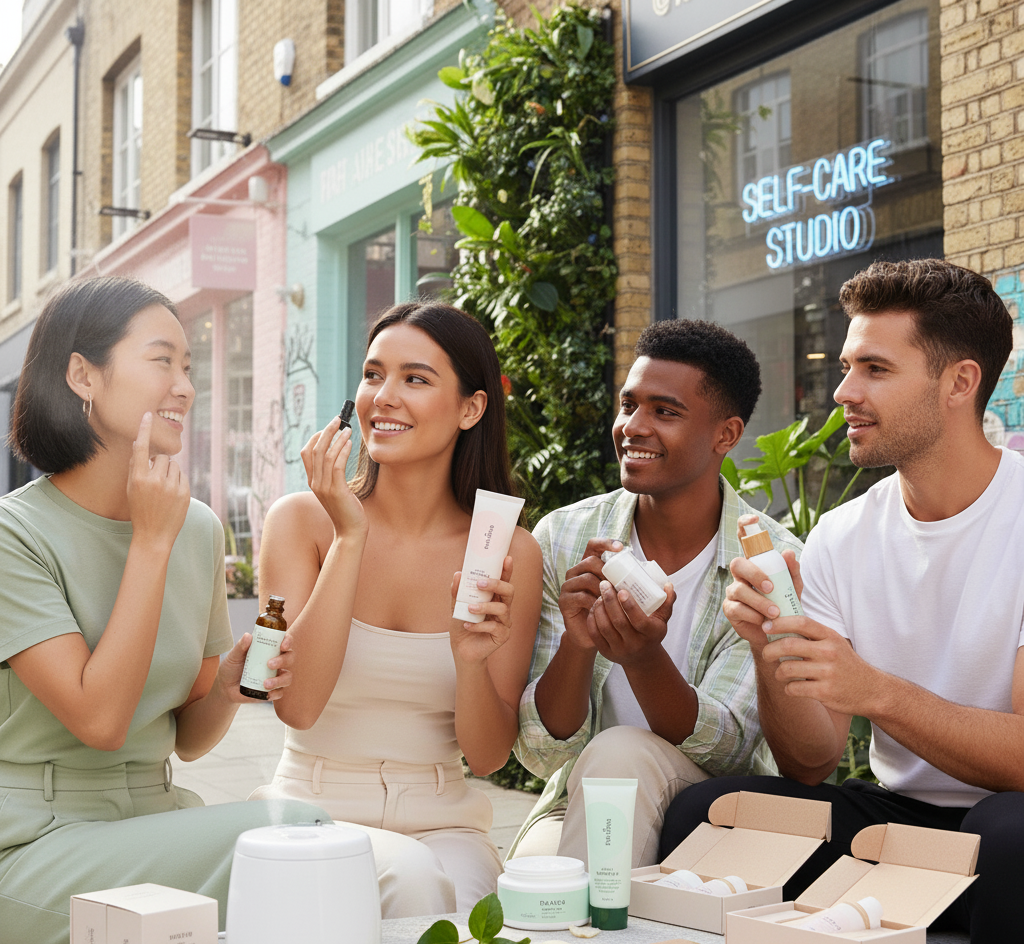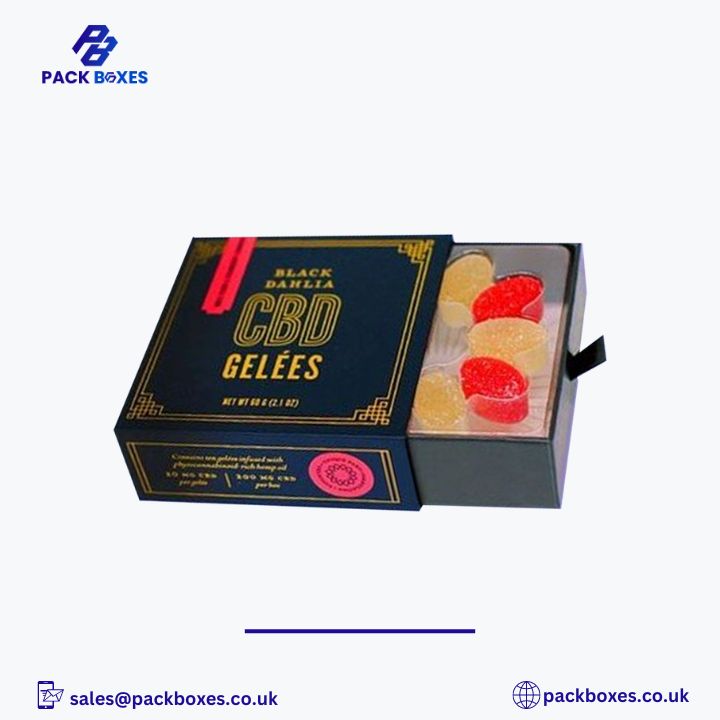In recent years, Gen Z’s obsession with skincare has taken the beauty industry by storm. From viral TikTok skincare routines to innovative Skincare Product Packaging, the younger generation is transforming how the world views self-care, beauty, and wellness. In London, United Kingdom, this skincare revolution has become a cultural movement — blending sustainability, inclusivity, and technology into a booming market worth billions.
But what exactly drives this skincare craze among Gen Z? Why are brands and packaging companies, like PackBoxes, focusing so much on their skincare audience? Let’s dive deep into this fascinating generational phenomenon.
1. The Rise of Skincare Culture Among Gen Z
Gen Z, born between 1997 and 2012, is the most self-aware and digitally connected generation. Unlike millennials, who were driven by makeup trends, Gen Z is all about healthy, glowing, natural skin. This generation values self-expression, authenticity, and transparency.
Social media platforms like TikTok, Instagram, and YouTube have played a significant role in creating skincare awareness. Influencers and dermatologists share before-and-after results, ingredient breakdowns, and honest reviews — making skincare education accessible to everyone.
Moreover, Gen Z sees skincare as part of self-care and mental wellness. Taking time for a skincare routine is no longer vanity — it’s therapy.
2. The Influence of Social Media
There’s no denying that social media has fueled this skincare revolution. Hashtags like #SkincareRoutine, #GlowUp, and #GlassSkin have billions of views.
Platforms like TikTok have turned dermatologists and estheticians into digital celebrities. For example, a single video showcasing an innovative serum or cleanser can lead to massive product sellouts overnight.
In London, brands have recognized this digital power. They collaborate with micro-influencers to promote eco-friendly products with visually stunning Skincare Product Packaging that attracts social media users instantly.
Eye-catching packaging is no longer just about protection — it’s about storytelling. The unboxing experience shared online becomes free marketing, and Gen Z loves aesthetically pleasing packaging that looks great on camera.
3. A Generation That Values Ingredients and Transparency
One of the defining traits of Gen Z consumers is their curiosity about ingredients. They don’t just buy what looks good — they research.
They know the difference between niacinamide and hyaluronic acid and can spot greenwashing a mile away. Brands that are transparent about ingredients, sourcing, and manufacturing earn Gen Z’s trust.
This shift has forced companies to prioritize clean formulations and eco-conscious branding. Even Skincare Product Packaging plays a vital role here. Gen Z prefers sustainable, recyclable, or refillable packaging that aligns with their environmental values.
In London, many indie skincare brands are gaining traction by being transparent, vegan-friendly, and cruelty-free — values that strongly resonate with Gen Z consumers.
4. The Power of Aesthetics and Minimalism
A clean and minimal aesthetic dominates Gen Z’s preferences. Unlike the bold and glittery designs of the past, today’s skincare packaging focuses on simplicity, soft colors, and natural tones.
This aesthetic matches the minimalist lifestyle that Gen Z aspires to — simple, functional, and eco-friendly.
Brands that use minimalistic Skincare Product Packaging not only reflect purity and quality but also create a sense of trust and sophistication. In London, skincare shops and beauty chains display these products in visually pleasing arrangements that attract the modern consumer’s eye.
5. Mental Health and Self-Care Connection
For Gen Z, skincare isn’t just a beauty routine — it’s an act of self-love. The ritual of cleansing, applying serums, and moisturizing is a mindful process that helps reduce stress and anxiety.
After the global pandemic, many young people began focusing more on personal health and mental well-being. Skincare became a form of emotional healing and confidence-building.
This psychological connection between skincare and self-care has become a marketing focus. Brands now design packaging that promotes calmness and relaxation, with soft pastels, clean fonts, and sustainable materials.
6. The Impact of Sustainability and Ethical Choices
In today’s environmentally conscious world, Gen Z wants more than results — they want responsibility. They are aware of the ecological impact of plastic waste and unethical production.
This has led to a demand for biodegradable, refillable, and recyclable materials. Brands in London and across the United Kingdom are now investing in innovative Skincare Product Packaging made from recycled paper, glass, and plant-based plastics.
For example, PackBoxes helps brands design eco-friendly and custom packaging that balances aesthetics with sustainability. By choosing ethical packaging options, brands appeal directly to Gen Z’s environmental conscience.
7. Inclusivity and Diversity in the Skincare Industry
Gen Z has redefined beauty standards. They reject unrealistic ideals and embrace diversity in skin tones, genders, and identities.
This inclusivity has reshaped the skincare industry. Brands now cater to a broader audience, ensuring products suit different skin types and ethnicities.
In London, a culturally diverse city, inclusivity in skincare branding is essential. Packaging reflects this diversity with imagery, language, and designs that speak to everyone.
By using inclusive messaging and designs, brands create emotional connections with Gen Z, who values representation and authenticity.
8. Technology and Innovation in Skincare
Tech-driven skincare is another major reason for Gen Z’s obsession. From AI-powered skin analyzers to personalized routines, technology has made skincare smarter than ever.
Apps now recommend products based on your skin type, and smart mirrors track your skin progress. Even Skincare Product Packaging is becoming tech-savvy — with QR codes that reveal product details, ingredients, and usage tips.
This blend of technology and skincare innovation has fascinated Gen Z, who grew up in a digital world. Brands in London are leveraging this trend by integrating tech with eco-friendly packaging to create futuristic yet sustainable beauty products.
9. The Role of Influencers and Celebrity Brands
Influencers and celebrities have made skincare glamorous and relatable. From Kylie Jenner to Hailey Bieber, many have launched skincare lines that cater directly to Gen Z’s needs.
However, Gen Z is not easily swayed by fame alone — they expect authenticity. Brands must demonstrate genuine results and ethical practices to win their trust.
Celebrity skincare lines now collaborate with packaging companies to create designs that reflect transparency, simplicity, and sustainability — further enhancing brand appeal.
10. The Future of Skincare and Packaging in London
The skincare boom isn’t slowing down anytime soon. In London, where trends often start before spreading globally, brands are continually evolving to meet Gen Z’s expectations.
The future will see even more eco-friendly innovations in Skincare Product Packaging, with refill stations, compostable materials, and minimalist luxury designs leading the way.
Companies like PackBoxes will play a central role in this future — helping brands balance style, sustainability, and storytelling through packaging that aligns with Gen Z’s lifestyle and values.
Conclusion
Gen Z’s obsession with skincare is more than just a passing trend — it’s a generational movement that combines wellness, sustainability, and self-expression.
From social media influence to eco-conscious packaging choices, every aspect of skincare has been revolutionized. In London, United Kingdom, this new wave of skincare culture continues to inspire brands to innovate responsibly while keeping authenticity and transparency at the heart of their strategies.
Whether it’s a viral serum or beautifully designed Skincare Product Packaging, one thing is clear: Gen Z is shaping the future of beauty — one sustainable glow at a time.
Top 10 FAQs About Gen Z and Skincare
1. Why is Gen Z so focused on skincare instead of makeup?
Gen Z prioritizes healthy, natural skin over covering imperfections. They view skincare as self-care, emphasizing prevention and authenticity rather than cosmetic concealment.
2. How has social media influenced Gen Z’s skincare habits?
Social media platforms like TikTok and Instagram have made skincare education and reviews easily accessible, encouraging young consumers to experiment and share their routines.
3. What type of skincare packaging does Gen Z prefer?
They prefer eco-friendly, minimalistic, and recyclable Skincare Product Packaging that aligns with their environmental values and aesthetic preferences.
4. How important is sustainability to Gen Z in skincare?
It’s crucial. Gen Z supports brands that use sustainable ingredients and packaging, avoiding plastic-heavy or wasteful materials.
5. Are Gen Z consumers loyal to skincare brands?
Not always. They tend to explore different brands but remain loyal to those that show authenticity, transparency, and visible results.
6. Why do skincare brands in London target Gen Z?
London’s Gen Z population is trend-savvy, eco-conscious, and influential online — making them the perfect target for innovative skincare brands.
7. What role does packaging play in skincare marketing?
Packaging acts as a silent salesperson. It communicates brand values, attracts attention, and provides a memorable unboxing experience, especially for social media sharing.
8. How does Gen Z research skincare products?
They rely on online reviews, dermatologists’ advice, ingredient analysis apps, and influencer recommendations before making a purchase.
9. What are the biggest skincare concerns among Gen Z?
Common concerns include acne, dryness, sensitivity, and maintaining a natural glow while using clean, non-toxic products.
10. How is technology shaping the future of skincare?
AI-powered tools, smart mirrors, and tech-integrated packaging are personalizing skincare routines, making the process more efficient and results-driven.







